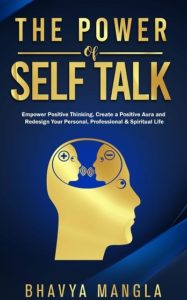Difference Between Mindfulness and MindfulLness


Once upon a time, there was an old farmer who used farming for many years. One day his horse ran away. Upon hearing the news, his neighbors came to visit. “Such bad luck,” they said sympathetically.
“Maybe,” the farmer replied.
The next morning the horse returned, bringing with it three other wild horses. “How wonderful,” the neighbors exclaimed.
“Maybe,” replied the old man.
The following day, his son tried to ride one of the untamed horses, was thrown, and broke his leg. The neighbors again came to offer their sympathy for his misfortune.
“Maybe,” answered the farmer.
The day after, military officials came to the village to induct young men into the army. Seeing that the son’s leg was broken, they passed him by. The neighbors congratulated the farmer on how well things had turned out. “Maybe,” said the farmer.
This story reminds us of a beautiful quote about Mindfulness:
“Mindfulness is simply being aware of what is happening right now without wishing it were different; enjoying the pleasant without holding on when it changes (which it will); being with the unpleasant without fearing it will always be this way (which it won’t).” – James Baraz
According to a study, on average, we have 45000 to 55000 thoughts in a day which translates into 25 to 35 thoughts a minute. It means that our minds keep on fluctuating throughout the day. Like breathing, this is a normal process over which you do not seem to have any control. Consciously, you do not know whether you are breathing or not. But still, you survive even when you are sleeping! Similarly, your thoughts keep on coming and going; and it looks like you have no control over them. In a research study, it has been concluded that you cannot control your thoughts, but you can always direct them in the direction where you want them to go.
“No one can rest even for an instant without action. For one is always made to act by the forces born of nature”- Bhagavad Gita Verse 3.5
Mindfulness is the basic human ability to be fully present, aware of where we are and what we’re doing, and not overly reactive or overwhelmed by what’s going on around us.
“Mindfulness is the awareness that arises through paying attention, on purpose, in the present moment, and non-judgmentally.” When you start looking at life with no judgment, with no prejudice, then you are in the state of right-mindfulness.”
Mindfulness is a quality that every human being already possesses, it’s not something you have to conjure up, you just have to learn how to access it.
Our mind takes flight, we lose touch with our body, and pretty soon we’re engrossed in obsessive thoughts about something that just happened or fretting about the future. And that makes us anxious. Yet no matter how far we drift away, mindfulness is right there to snap us back to where we are and what we’re doing and feeling. If you want to know what mindfulness is, it’s best to try it for a while.
When we’re mindful, we reduce stress, enhance performance, gain insight and awareness through observing our own minds, and increase our attention to others’ well-being.
Mindfulness also involves acceptance, meaning that we pay attention to our thoughts and feelings without judging them—without believing, for instance, that there’s a “right” or “wrong” way to think or feel in a given moment. When we practice mindfulness, our thoughts tune into what we’re sensing in the present moment rather than rehashing the past or imagining the future.
Swami Vivekanand: We are what our thoughts have made us. So take care about what you think, words are secondary

Recent Comments